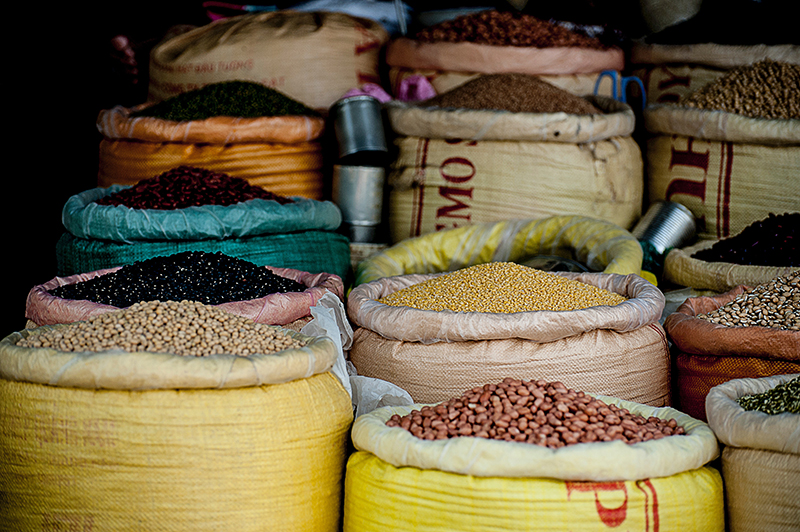
General Features of the Seed Law in Venezuela
On December 23, 2015, the Venezuelan Congress passed a new Legislation on Seeds, repealing the previous regulation from 2002, which also regulated the material for animal reproduction and biological supply.
Even from the preamble, this law makes a clear statement against any seed protection on the basis of the Intellectual Property, or a similar concept. Thus, the law clearly sets forth in Article 1, that is aimed to forbid “the breeder’s patents and rights on the seed”, and to prevent the “release, use, multiplication, entry into the country, and national production of transgenic seeds”, among other aspects.
The law goes on with sentences that respond exclusively to political-ideological reasons, rather than to technical-scientific rigor. In this regard, the articles are full of expressions such as “corporative seed”, “good living”, “communal and eco-socialist agriculture”, “local, peasant, indigenous and Afro-descendant seed”, or “agro-ecological socialist vision”.
In compliance with the principles set forth in the 2012 Organic Labor Law, by means of this new regulation, Venezuela this time insists in declaring every seed produced with the State resources as a common good of public interest, and continues to declare the seed to be “a good of public domain”, clarifying afterwards that it is about that of public ownership, corresponding to everyone.
The new Law also broadens the concept of common good of public interest to the traditional knowledge associated with seeds, such as how-to, practices and local beliefs.
It is important to point out that the prohibition to import, produce, distribute or any trade form whatsoever set forth in this new regulation on transgenic seeds, includes the organisms genetically modified by modern biotechnology.
As we pointed out above, Article 66 of the new law clearly sets forth that “the granting of breeder’s rights and patents on the seeds is hereby forbidden, as well as any other figure that promotes seed’s privatization”.
Venezuela, as it is well known —as a natural consequence of the accession of Venezuela to the World Trade Organization (WTO)— approved Annex 1C named Agreement on the Aspects of the Intellectual Property Rights associated to Trade [Acuerdo sobre los Aspectos de los Derechos de Propiedad Intelectual Vinculados con el Comercio , ADPIC [1] ], a multilateral agreement that allowed a progressive international harmonization by establishing the basic principles of recognition and protection of Intellectual Property which the member countries promised to respect.
Regarding patentable matter, Article 273B of the ADPIC sets forth that the member states shall exclude “plants and animals, except for microorganisms, and the process essentially biological for the production of plants or animals, which are not biological or microbiological procedures”. However, the same regulation continues to establish the countries’ obligation to provide protection to all the vegetable acquisitions by means of patents, an efficient sui generis system, or a combination of both.
The Law on Seeds and specifically the regulation where the granting of breeder’s rights and patents on the seed is forbidden, is a flagrant infraction to the obligations assumed by the Republic through the ADPIC, being that through the constitutional regulations, international treaties such as the ADPIC, have an immediate and direct application by the courts and other bodies of the Public Power, and have domestic priority.
Additionally, the protection of the intellectual property, regardless of the technological field, is stipulated in Article 98 of the Constitution of the Bolivarian Republic of Venezuela in force:
“The State will recognize and protect the intellectual property on the scientific, literary, and artistic works, as well as on the inventions, innovations, denominations, patents, trademarks and slogans, depending on the conditions and exceptions set forth in the law and the international agreements entered into and ratified by the Republic in this matter” (emphasis added).
Therefore, the New Law on Seeds represents and additional set-back for the Intellectual Property in Venezuela, a processed that began in 2006 with Venezuela’s separation from the Andean Community of Nations and the definitive non-application of its regulation regarding Intellectual Property in 2008, with the reapplication of 1956 Law on Industrial Property.
Sources:
- Photo by Paul Morris on Unsplash
- [1] Approving Law of the Marrakech Agreement by which the World Trade Organization was created. Official Gazette No. 4829 E, dated December 29, 1994, Annex 1C. Agreement on the Aspects of the Intellectual Property Rights associated to Trade







